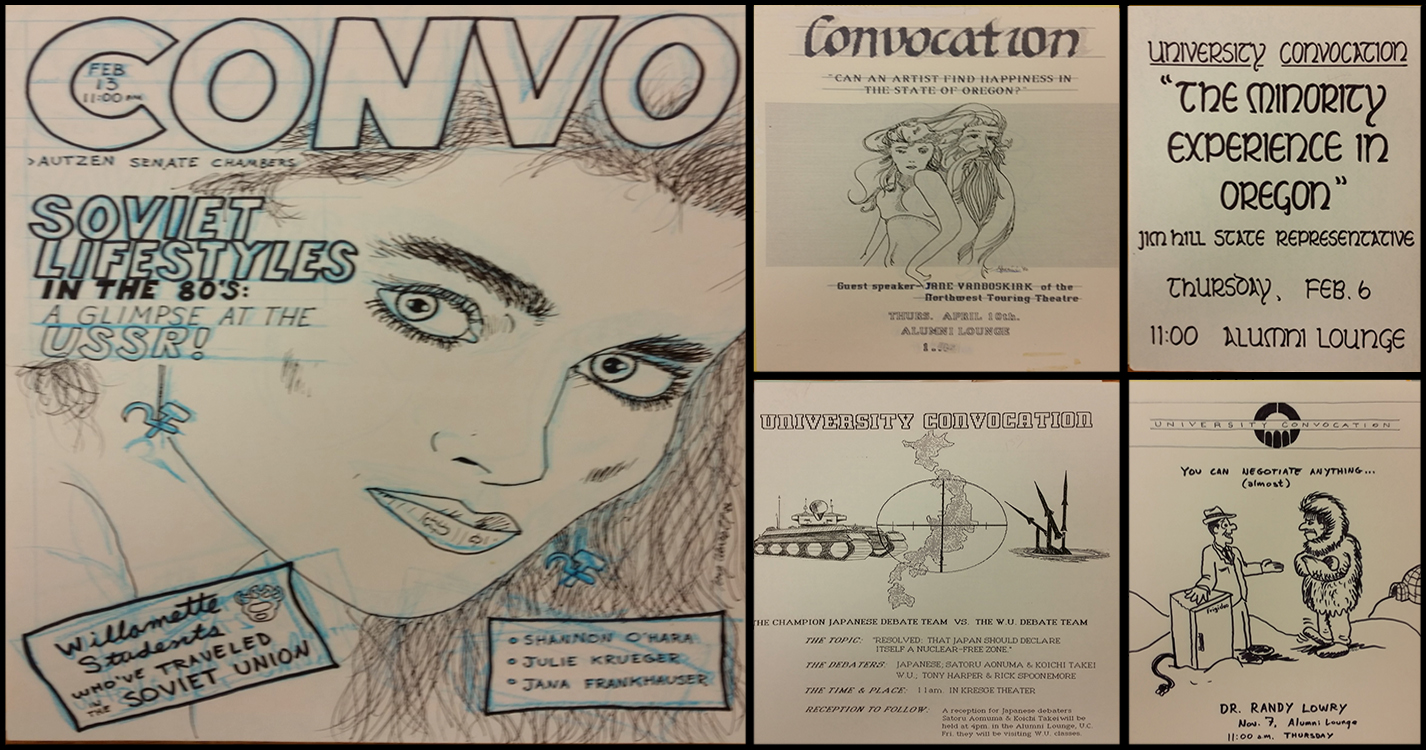The course title gives a clue about the wide-ranging subjects to be explored: Convocation: Reflecting on Campus, Community and Cosmos.
Unlike most Willamette courses, this one invites members of the entire university and the local community to expand their minds and understanding. Now held Thursday lunchtimes at Cone Chapel, Convocation (popularly known as “convo”) invites attendees to engage with new ideas and important topical events, such as racism, immigration and LGBTQ rights.
In doing so, this longstanding tradition reflects both Willamette’s religious roots and its liberal arts mission.
“It’s important from a liberal arts perspective that learning doesn’t just come from a grade you get in class, and that scientists can learn from poets and non-scientists can listen to and learn from scientists,” says Chaplain Emeritus Charlie Wallace, who spoke at a recent convo about the event’s history.
“There needs to be a place where those kinds of conversations can take place, where you can wrestle with the issues of the day — something of what our university founders imagined, even though we’re now light years away from that time.”
Conservative Beginnings
Like many of the oldest educational institutions in America, Willamette was founded as a religious mission. For decades, the Methodist faith wove through all aspects of education and campus life. Chapel used to be a daily, compulsory event for students, who’d start each day with Bible readings, hymns and a sermon from the president (Wallace estimates that all but nine of Willamette’s presidents have been ordained ministers).
“The aim was to teach people how to make a life, not just a living — to add a moral, ethical component to their education,” says Wallace. “Although the university’s relationship with the church doesn’t mean now what it used to, Convocation still goes on, and it’s associated with the Office of the Chaplains.”
Inspiring Self-Reflection
In the 1960s, with seismic changes in American society and culture and fewer students identifying as religious, Willamette replaced daily, mandatory chapel attendance with a weekly secular Convocation.
Where the university chaplain once selected topics for Convocation, Wallace created the Convo class in the 1990s to get students involved with the interdisciplinary event. Class members now plan, publicize and host convo. They research issues that academia can and should address, and they invite on- and off-campus speakers, musicians or other performers — often ones with a spiritual or ethical message.
“When students pick the topics, they genuinely own them — from the conception to the process to the actual execution of the Convocation,” says Chaplain Karen Wood. “Their reflection papers are thoughtful, self-critical and often takes them to places for further exploration.”
This past year, Convocations have centered on the issues of privacy in the Internet age, Willamette’s relationship with Tokyo International University (TIU) and Tokyo International University of America (TIUA), and race and racism in Oregon.
For Crystelle Baclig ’16, Convocation enables students to learn more about the world in which they live. “It brings interesting people to campus,” she says. And it’s an opportunity for students to voice their own opinions and hear differing ones.”

